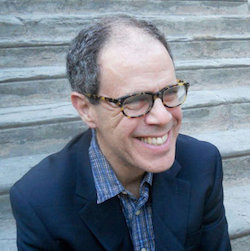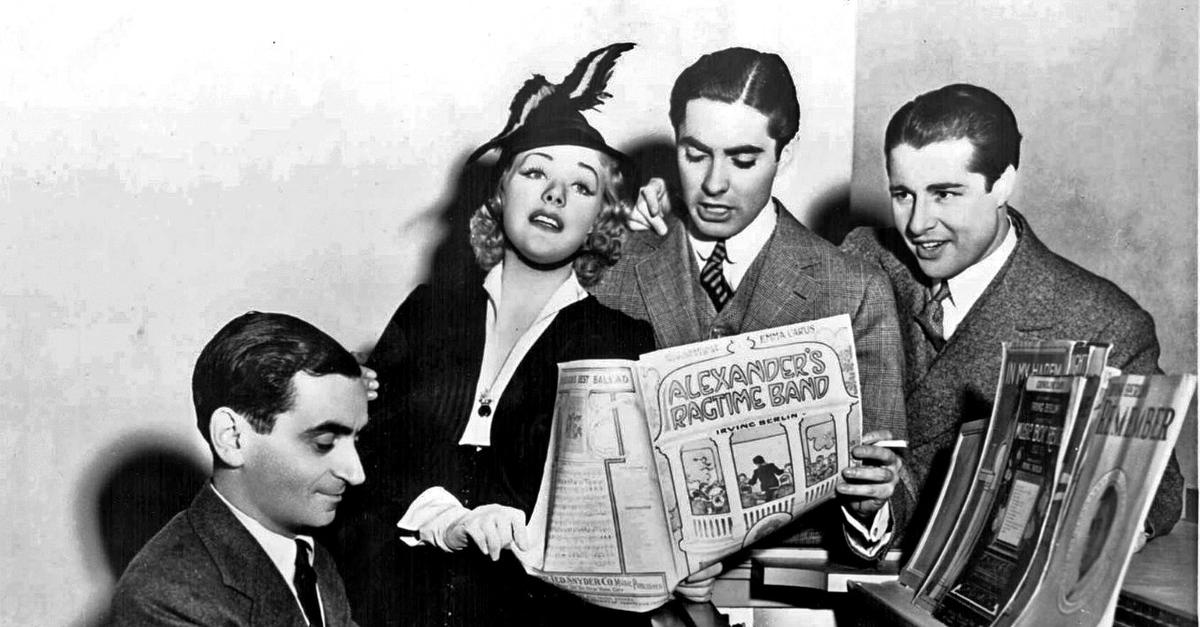A Brief History of Max Dreyfus

Max Dreyfus arrived in the U.S. at the age of 14 coming with his family from Germany. I have never posted before on a record producer – so here is a first. I learned about Dreyfus in the book “The B Side” by Ben Yogoda – a nice journey back examining the American Standards from the early days and the folks composing and those recording the songs.

The Dreyfus family landed in Jackson, Mississippi. By the time he was old enough to work he sold photo frames. As he approached adulthood he was eager to try his hand at song writing and so made his way to New York City where he would align himself with Paul Dresser – another song writer.

Although Dreyfus had a success of sorts with a song titled “Cupid’s Garden” in 1901 (using the name Max Eugene), songwriting just wasn’t in the cards.

Before long Dreyfus would be hired by Thomas B. Harms song publishing and before long was an invested partner – owning 25 percent of the business. Under the guidance of Dreyfus, T.B. Harms would gravitate away from Tin Pan Alley compositions for sheet music into composing for the Broadway stage.
As a partner at Harms, Dreyfus would one day meet an eager young man who wanted to break into the world of song writing. Only 19, the youngster was given a job on the bottom rung of Tin Pan Alley, that of a song plugger.
Song plugging meant hitting the bricks visiting the retail stores, night clubs and performance venues around New York City, playing tunes on a piano – sometimes singing along and peddling the accompanying sheet music.

The teenager paid his dues and was brought on by Dreyfus to put pen to paper and so the world of music was given Jerome Kern! Jerome, in turn, would give the world a ton of songs in Broadway musicals including Ziegfeld Follies, Show Boat, and Music in the Air.
He composed great American songs including “Look For the Silver Lining”, “‘Ol Man River”, “I Won’t Dance”, “The Last Time I Saw Paris”, “Smoke Get’s In Your Eyes” and my favorite “The Way You Look Tonight”.

Max Dreyfus’s knack for spotting talent didn’t end with Kern. He would commission several others early in their song writing journeys including Rudolph Friml who worked with many great lyricists composing the music for (“Firefly”, “The Dew Drop Inn”, “The Three Musketeers”, “Vagabond King” etc.); Vincent Youmans (“The Deep Blue Sea”, “The Boy Next Door”, “No, No Nanette”, “I Want To Be Happy”, “Tea For Two”, etc).
He brought a very young struggling and then unknown Cole Porter on board (enough said) and then E.Y. Harburg when many other firms were turning him down (Lyricist for “Brother Can You Spare a Dime”, “April in Paris”, “It’s Only a Paper Moon”, “Old Devil Moon”, and “Over the Rainbow”, etc.)

Next, Dreyfus would invite a young composer who only had a few songs under his belt, all unknown. Max put him on the payroll for 25 bucks a week. Young George Gershwin was so grateful to Dreyfus that he stayed on with Harms into his glory years.

Because of Max’s knack for spotting and signing talent, Harms agency ross the the pinnacle of Tin Pan Alley. Also among the Dryfess discoveries were:
Harry Ruby & Burt Kalmar: “Who’s Sorry Now”, “Three Little Words”, “A Kiss to Build a Dream On”
Buddy DeSylva: “April Showers”, “Look For the Silver Lining”, “I Wanna Be Loved By You”, “The Real McCoys for TV show)
Joe Meyer: “California Here I Come”, “If You Knew Susie”
Irving Caesar: “Animal Crackers In My Soup”, “I Want To Be Happy”, “Tea For Two”
Arthur Schwartz: “By Myself:, “Dancing In the Dark”, “That’s Entertainment”
Vernon Duke: “Taking a Chance On Love”, “Autumn In New York”, “I Can’t Get Started”
Howard Arlen: “Ac-Cent-Tchu-Ate the Positive”, “Come Rain or Come Shine”. It’s Only a Paper Moon”, “Let’s Fall In Love”, “That Old Black Magic”, “Blues in the Night” and “Over the Rainbow”

Bottom: Caesar – Schwartz – Duke – Arlen
Max and younger brother Louis Drefus would obtain complete ownership of Harms, then later on purchase the English agency Chappell & Co., and would nearly dominate the Broadway musical scene – employing nearly all the great stage songwriters and delivering songs for “My Fair Lady”, “South Pacific”, “The Sound Of Music” and “Funny Girl”.

Max Drefus passed away in 1964 at the age of 90.

November 6, 2021 at 6:44 pm
Maybe more of a talent scout and music publisher. Still, very impressive. American music might be very different without the people he brought to the fore. Thanks for an enlightening article.